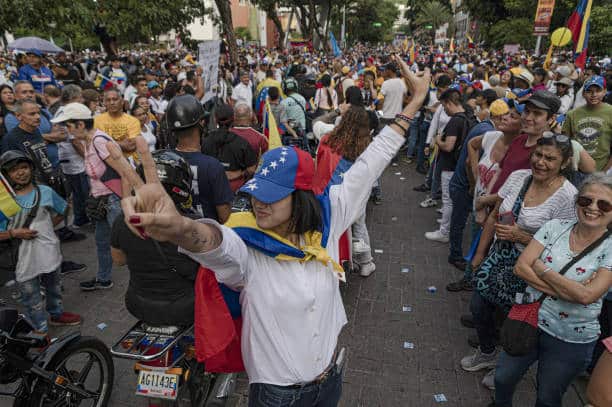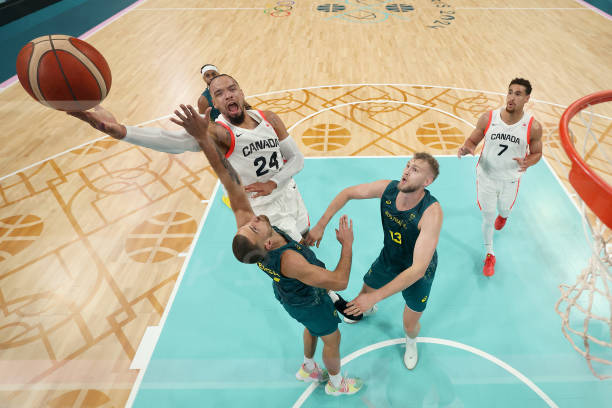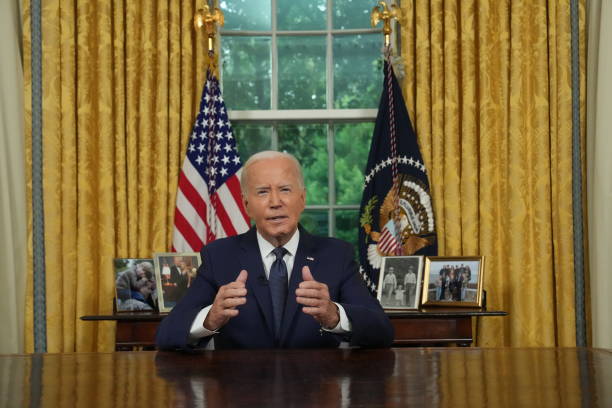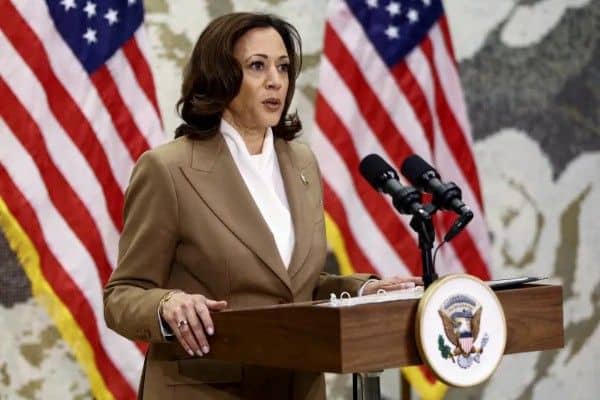CARACAS — Venezuelans held their breath, awaiting the outcome of Sunday’s presidential election—a pivotal moment that could potentially end 25 years of single-party dominance. Even as some polling stations remained open well beyond the scheduled closing time, the anticipation grew.
President Nicolás Maduro, seeking a third term, faced an unexpected challenge from Edmundo González, a retired diplomat who was virtually unknown to the electorate before stepping in for the opposition’s leading figure, Maria Corina Machado, in April.
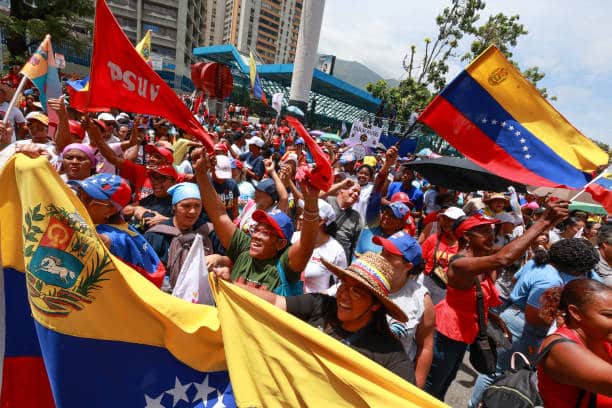
Across the country, opposition supporters were already celebrating, both online and at various voting centers, convinced of a landslide victory for González. Their optimism was fueled by purported exit polls indicating a significant lead for him, despite the fact that such polls are not permitted under Venezuelan law.
“I’m so happy” said Merling Fernández, a 31-year-old bank employee, as a representative of the opposition campaign emerged from a polling centre in a working-class neighbourhood of Caracas, announcing results showing González had more than double Maduro’s votes. The gathered crowd spontaneously broke into the national anthem.
“This is the path toward a new Venezuela,” Fernández added, tears welling up. “We are all tired of this yoke.”
Despite this, Maduro’s supporters were not conceding. “We can’t give results, but we can show face,” Jorge Rodriguez, Maduro’s campaign chief, said with a smile at a press conference.
Although polls were supposed to close at 6 p.m., many in Caracas remained open hours later, with authorities providing no updates. The opposition urged the National Electoral Council to start counting the votes.
RELATED : Venezuela election live updates: Voters to choose between another term for Maduro or a big change
“This is the decisive moment,” said Machado, standing beside González at their campaign headquarters.
Machado, careful not to declare victory prematurely, mentioned that she had received copies of some official tallies showing a record turnout—the exact scenario the opposition needed to counter Maduro’s well-organized electoral machinery. González echoed her sentiments, celebrating the “historic” day and calling for supporters to “celebrate in peace.”
Earlier in the day, U.S. Vice President Kamala Harris expressed her support, stating, “The United States stands with the people of Venezuela who expressed their voice in today’s historic presidential election. The will of the Venezuelan people must be respected.”
Some of Maduro’s allies also projected confidence. “The ballot boxes reflect what the streets have been saying during the past months of campaigning,” tweeted Maduro’s son, lawmaker Nicolas Maduro Guerra. “Victory for the Venezuelan people.”
However, without an official directive to close the polls, such declarations seemed hollow.
Voters had begun lining up at various centers across the country before dawn, sharing water, coffee, and snacks as they waited.
This election could have significant repercussions throughout the Americas, with both government supporters and critics contemplating joining the exodus of 7.7 million Venezuelans who have left the country if Maduro secures another six-year term.
The election coincided with what would have been the 70th birthday of former President Hugo Chávez, the charismatic leftist leader who succumbed to cancer in 2013, leaving his Bolivarian revolution in Maduro’s hands. Yet, under Maduro’s leadership, the United Socialist Party of Venezuela has become increasingly unpopular, with many voters blaming his policies for economic hardships, widespread hunger, and mass migration.
Maduro, 61, faces an opposition that has finally united behind a single candidate after years of internal divisions and election boycotts that undermined their efforts to unseat the ruling party.
Machado was barred from running for any office for 15 years by the Maduro-controlled supreme court. After winning the opposition’s October primary with over 90% of the vote, she named a college professor as her stand-in, but the National Electoral Council also barred him from the ballot. This led to the selection of González, a political newcomer.
Sunday’s ballot included eight other candidates challenging Maduro, but only González posed a real threat to his rule.
After voting, Maduro pledged to accept the election results and urged other candidates to do the same. “No one is going to create chaos in Venezuela,” he stated. “I recognize and will recognize the electoral referee, the official announcements, and I will ensure they are recognized.”
Venezuela, once Latin America’s most prosperous economy, has been in a steep decline since Maduro took office. Plummeting oil prices, severe shortages, and hyperinflation—exceeding 130,000%—led to social unrest and mass emigration.
U.S. sanctions aimed at ousting Maduro following his 2018 re-election—deemed illegitimate by the U.S. and numerous other countries—only deepened the crisis.
Maduro’s campaign promised economic stability, citing entrepreneurship stories and claims of a stable currency exchange and reduced inflation. The International Monetary Fund forecasts 4% economic growth this year—one of the fastest in Latin America—following a 71% contraction from 2012 to 2020.
However, most Venezuelans have seen little improvement. Many earn less than $200 a month, struggling to afford basic necessities. Some take on multiple jobs. A basket of essential items for a family of four costs an estimated $385.
Judith Cantilla, 52, voted for change. “For me, change in Venezuela means jobs, security, medicine in hospitals, good pay for teachers and doctors,” she said after casting her ballot in Caracas’ Petare neighborhood.
Elsewhere, Liana Ibarra, a manicurist in greater Caracas, arrived at her polling station at 3 a.m. with water, coffee, and snacks, only to find at least 150 people ahead of her.
“There used to be a lot of indifference toward elections, but not anymore,” Ibarra said.
She added that if González loses, she would ask her relatives in the U.S. to sponsor her and her son’s application for legal emigration. “We can’t take it anymore,” she said.
The opposition focused on the vast inequalities that have emerged during the crisis, as Venezuelans have abandoned the bolivar in favor of the U.S. dollar. González and Machado centered their campaign on Venezuela’s hinterlands, where economic recovery seen in Caracas has not reached. They promised a government that would create jobs to entice expatriates to return and reunite with their families.
After voting at a polling station near a church in an affluent Caracas neighborhood, González called on the military to respect “the decision of our people.”
“What we see today are lines of joy and hope,” González, 74, told reporters. “We will replace hatred with love. We will turn poverty into progress. We will swap corruption for honesty. We will change farewells into reunions.”
An April poll by Caracas-based Delphos indicated that about a quarter of Venezuelans were considering emigration if Maduro won. The poll had a margin of error of plus or minus 2 percentage points.
Most Venezuelans who have left over the past 11 years settled in Latin America and the Caribbean. Recently, many have set their sights on the U.S.
Both campaigns stood out not only for their political platforms but also for how they addressed voters’ aspirations and anxieties.
Maduro’s rallies featured lively electronic merengue music and speeches criticizing his opponents. After receiving backlash from leftist allies, such as Brazilian President Luiz Inácio Lula da Silva, for a comment about a “bloodbath” if he lost, Maduro backtracked. His son told El Pais that the ruling party would peacefully transfer power if defeated—a rare acknowledgment of potential defeat, contrasting with the campaign’s triumphant tone.
In contrast, González and Machado’s rallies inspired tears and chants of “Freedom! Freedom!” from the crowds. Supporters handed the devout Catholic candidates rosaries, traveled long distances, and navigated military checkpoints to attend their events. Many video-called relatives abroad to share glimpses of the candidates.
“We do not want more Venezuelans leaving, and to those who have left, I say we will do everything possible to bring them back and welcome them with open arms,” González said on Sunday.
